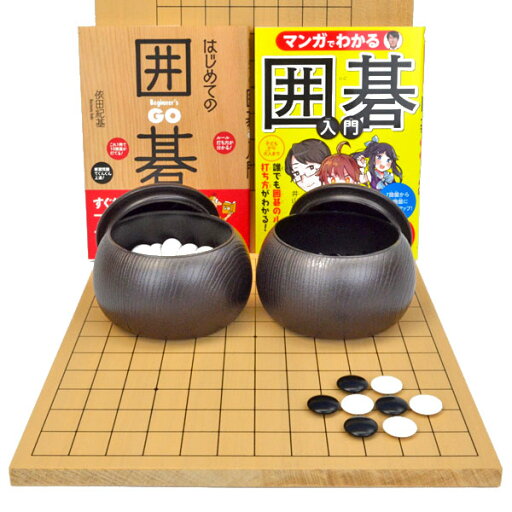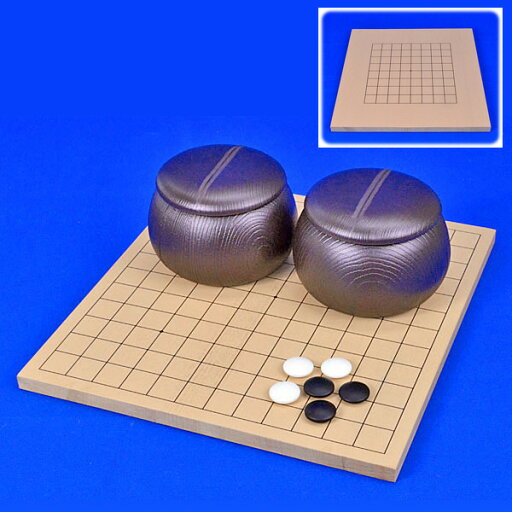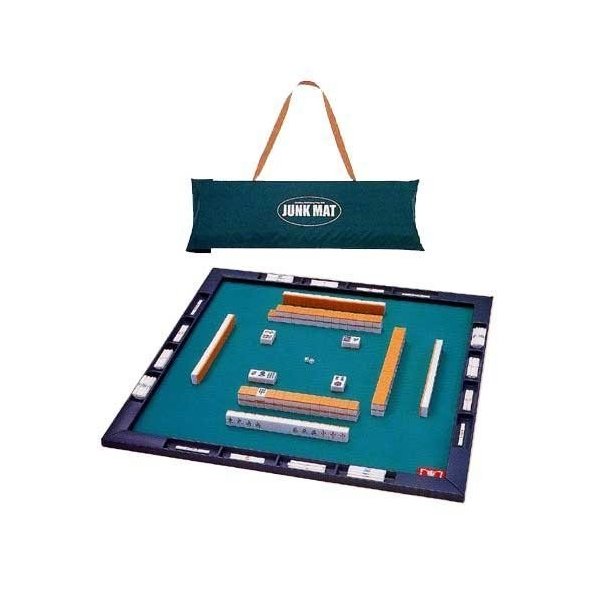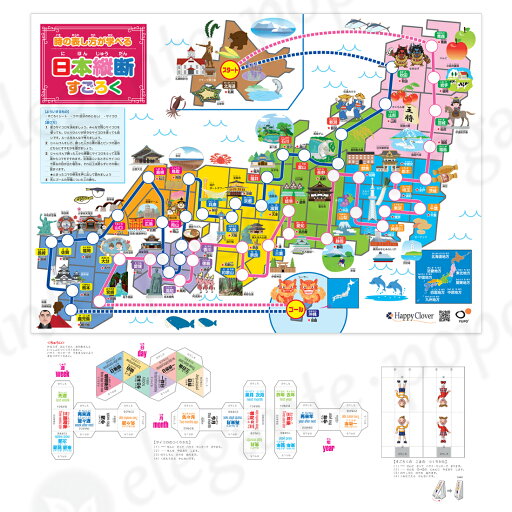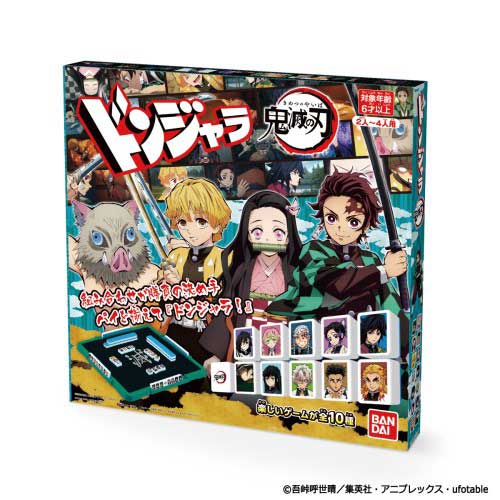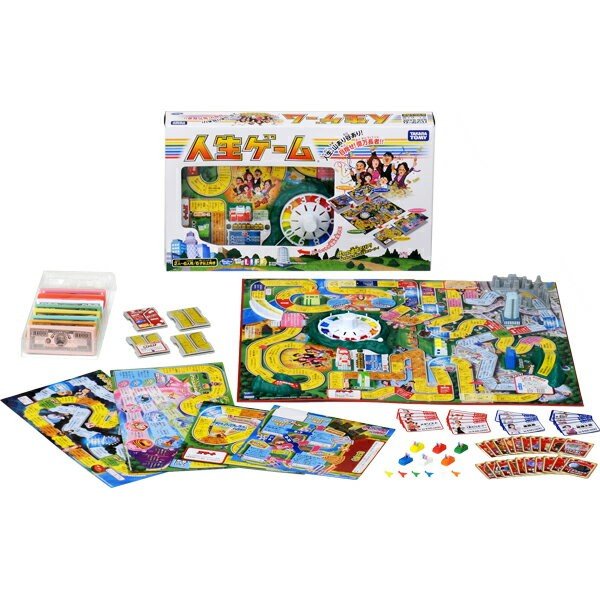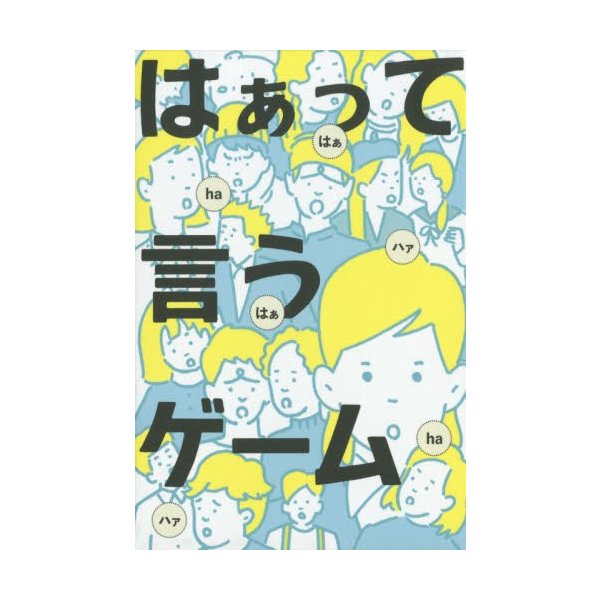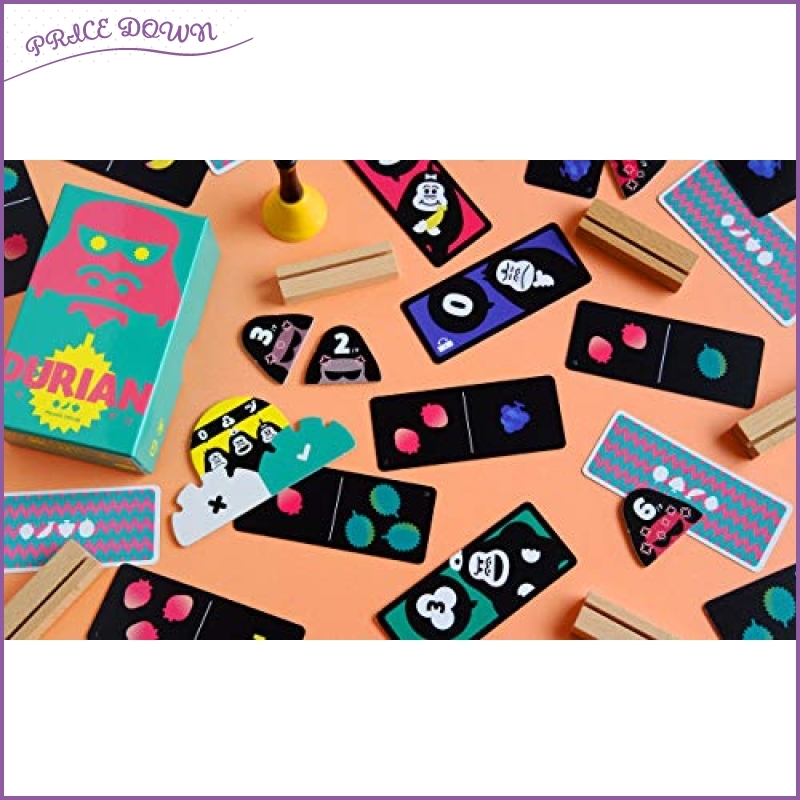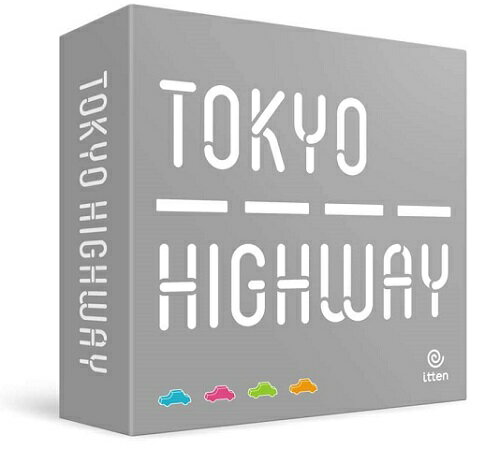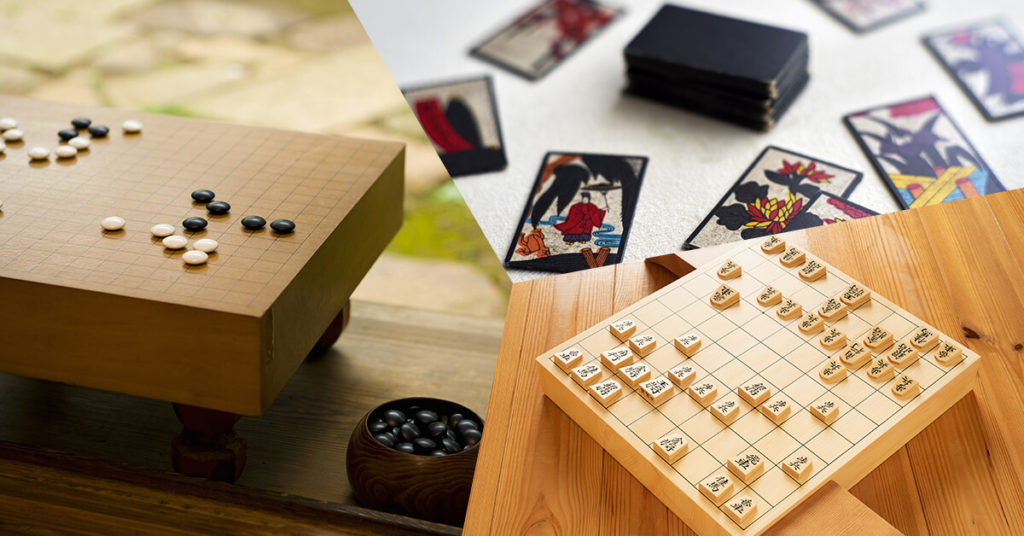
When you first think about Japanese games, the first thing that comes to mind may be Mario or Sonic, but Japan has enjoyed dozens of unique tabletop games since long before anyone ever picked up a game controller! Some of these board games date back centuries, but they are still enjoyed to this day due to their creativity and challenge. This article will cover 5 of these traditional games, along with 5 more modern ones that may feel more familiar to you!
Table of Contents
5 Top Traditional Japanese Board Games
Shogi: Chess with a Japanese Spin
Similar to chess, this two-player board game involves strategy, patience and cunning. There are 20 pieces per side with different abilities and rules for each piece. Unlike chess, units can be promoted once they reach the back row of the board, giving them extra movement abilities. Shogi allows players to take captured enemy units as their own, which keeps the game dynamic until the last move. Though complex, beginners can also have fun, which is why it is the most popular board game in Japan!
Go: The Ancient Asian Game of Strategy
Go is generally considered to be the world’s oldest board game. Players take turns placing black and white stones on the board’s intersecting gridlines with the goal of forming territories by surrounding and capturing their opponent’s pieces. The game rewards patience and balance over aggression and greed. Go’s simple rules can be learned quickly, but it takes a lifetime to master. The staggering number of possibilities in any given game has made it quite popular worldwide.
Gomoku: Simple at First, But Built to Last!
Gomoku, or ‘five in a row’, is a very different type of game from Go, but is played with the same stones and board. Players alternate placing their pieces on the board, trying to create a line of five in a row. The challenge comes not only from blocking the other player, but also making sure you don’t exceed five stones per line. Unlike Go, the pieces can not move once they’re played. Think of it as the ultimate version of tic tac toe!
Japanese Mahjong: New Twists on an Old Favorite
Mahjong is a traditional tile-based game where you play with three other players to try and form winning hands. In the West it is often compared to poker or rummy. Japanese Mahjong has it own unique and specific rules that make for a different experience! Worldwide, Mahjong’s popularity has only risen in recent years, and maybe with an easy-to-use portable set you could join the fad as well!
Sugoroku: Slap First and Win in This Classic Japanese Card Game!
When you talk about the classic board game sugoroku in Japanese, there is the ban-sugoroku (board sugoroku) variety and the e-sugoroku (picture sugoroku) variety, which have different playstyles. A game with centuries of history in Japan, where its use in gambling caused it to be banned multiple times, sugoroku has stayed popular as a game anyone can enjoy in many ways. For example, the left image shows a sugoroku set meant for young kids to learn about the locations of Japan as they play!
5 Trending Modern Japanese Board Games
Donjara: An Easier Mahjong For Kids!
Donjara, also known as Ponjan, is a simplified version of Japanese Mahjong aimed at children. It can be played with 2 to 4 players, and produces tie-in sets with franchises enjoyed by younger audiences to maintain its popularity, such as Youkai Watch, Doraemon, or as the left image shows, the recent hit anime series Demon Slayer: Kimetsu no Yaiba!
The Jinsei Game: Playing Japan’s Game of Life
Initially released by Takara Tomy in 1967, the Jinsei Game is the Japanese version of The Game of Life, a board game which many Western audiences are familiar with. The rules of the Jinsei Game differ slightly from The Game of Life, having players first go through the initial life stages of childhood development. While some game details have changed over the years, its core rules still remain the same, continuing to entertain generations of Japanese families.
The Hatteiu Game: A Recent Trending Hit Game!
The Hatteiu Game is a Japanese game that just began gaining popularity recently, with its first edition only having been released in 2018! As it is so recent, a standard translation of the title has not been set, but based on the rules, a name like ‘The Say Something Game’ would fit! You get a theme for each round that has a list of ways to say a single words. Players get a card telling them what style they play. By viewing each act and betting chips on what style it was, the players accumulate points for right answers and correct votes on their act! Japanese knowledge might be required, but you can watch the video below to see how a typical game goes!
Durian: Don’t Anger the Gorilla!
Durian is another recent Japanese game with a unique twist that can be both fun and funny. Players play as shop clerks ordering fruit from a gorilla. However, players are unable to see the full inventory list, so other players can use the small bell game piece to tell the gorilla if the other player is ordering too much. The winner is the player who manages to make the gorilla angry the least!
Tokyo Highway: A Board Game with no Board!
Tokyo Highway is a board game where you build the set as you play! Work with other players to construct criss-crossing highways and columns from the set pieces. Each time your road crosses over or under another player’s road, you get to place one car on the highway. But beware – if you accidentally knock over someone else’s car or highway piece, you must give them an equivalent number of column pieces as a penalty! The first player to reach 10 cars on the road wins!
Purchasing Japanese Board Games Online
If you are curious about giving some of these different styles of Japanese board games a try, proxy shipping services like Buyee are the simplest way to get Japan-only games from the seller to you! Whether traditional or modern, the two shops below are just some of the stores on Buyee that can service your gameplay needs!

